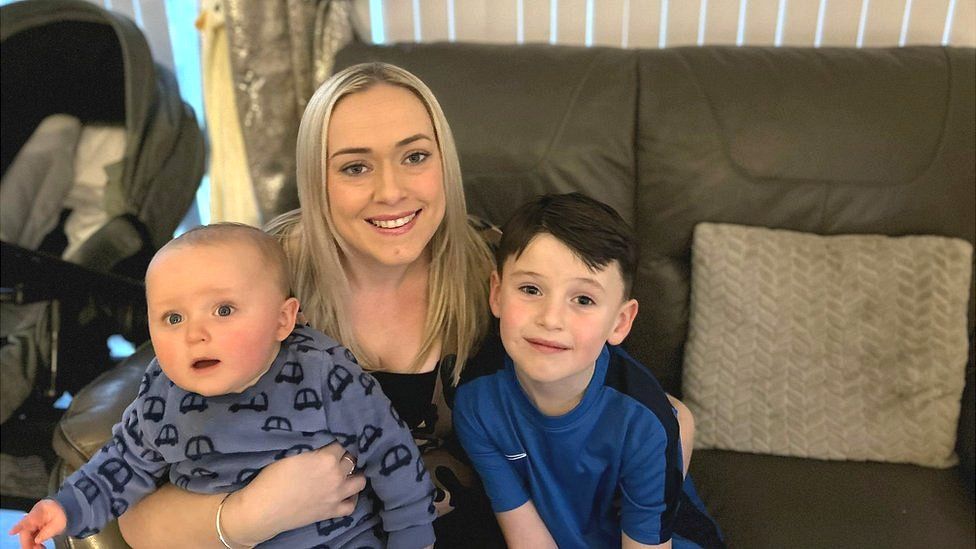
When Beth McDermott was advised by doctors not to have any more children due to a painful spinal condition she decided to get sterilised.
The 31-year-old chose to have the procedure at the same time her second son, Corey, was being delivered by caesarean section last summer.
But just months later she discovered she was pregnant.
"I felt a bit off and thought maybe it was just my body adjusting to the sterilisation operation, I didn't think for a minute I was pregnant," the Edinburgh mother said.
"When I found out I was pregnant I was in so much shock, I was hyperventilating and couldn't breath and my husband was saying 'please calm down' on the phone and rushed straight home from work."
Five positive pregnancy tests and an emergency scan at the hospital confirmed Beth and her husband, Shaun, 31, were expecting their third child.
NHS Lothian has apologised to Beth and her family, saying the sterilisation procedure was more than 99% effective. However, Beth is now calling for a full NHS investigation.
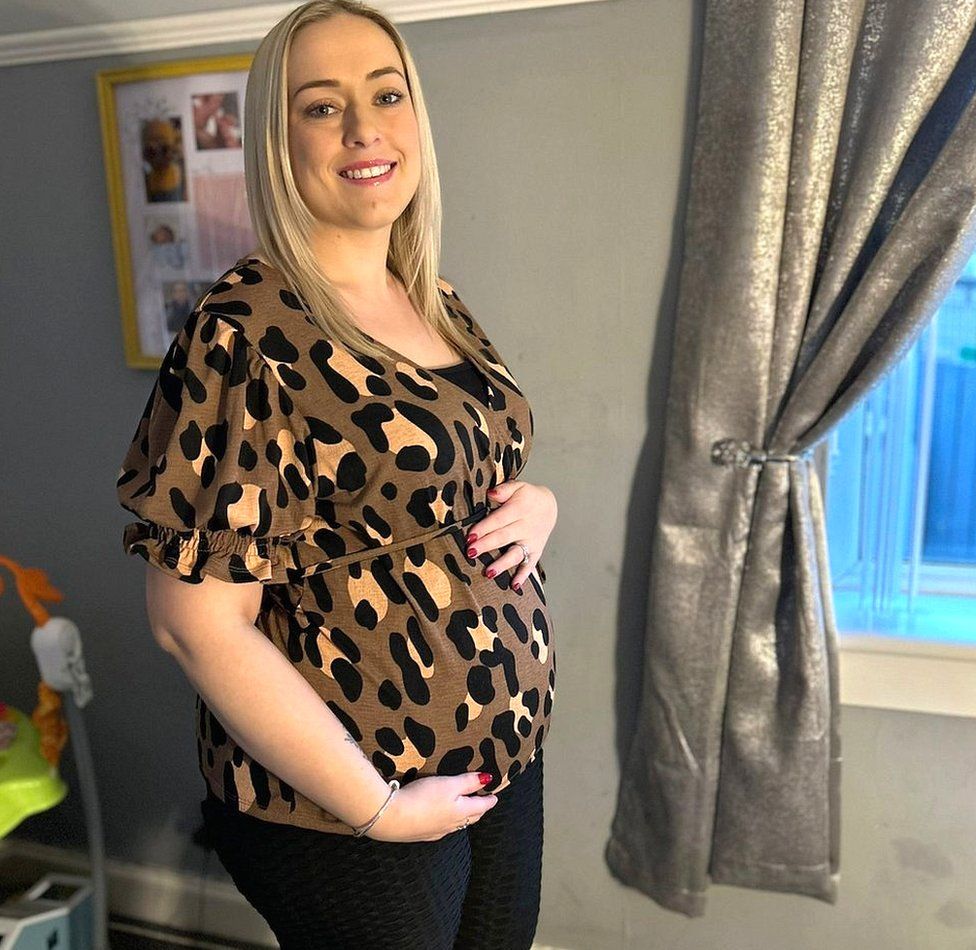
Beth was sterilised - by having metal clips clamped on to her fallopian tubes - after she was repeatedly hospitalised, and left in a wheelchair, during her two previous pregnancies.
They aggravated an existing painful back condition, called cauda equina syndrome, which causes paralysis from the waist down.
She was diagnosed in 2014 and underwent spinal cord surgery.
"I couldn't walk for six months and then it was a further two-and-a-half years of intense physio and walking with aids, which I still sometimes need to this day," she told BBC Scotland News.
"My bladder will also never be fixed.
"My life was turned upside down in one day."
Although Beth is disabled, she has relearned to walk using crutches after spending six months in a wheelchair and then using a walking frame.
"I'm still in pain every day," she said.
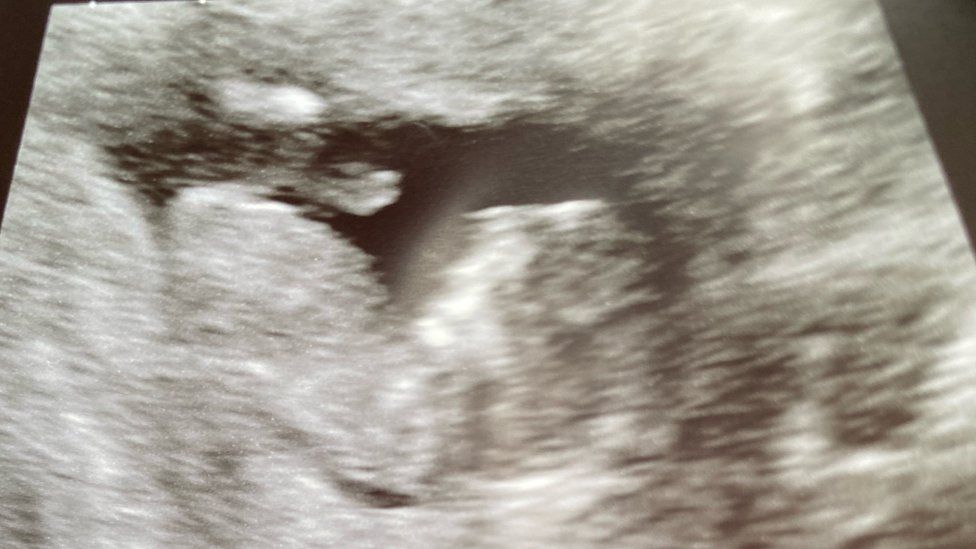
Doctors told her she may never be able to have a baby but the couple, who have been together since they were 14, went on to have their first child, Sonny, six years ago.
"When I fell pregnant it was unexpected. I was over the moon because I wasn't sure if I could fall pregnant," she added.
"We were scared though because the doctors had said it wouldn't be an easy pregnancy, I was in a panic but we decided to go for it.
"Pregnancy is very tough on your back ordinarily but with my condition it was so painful and it severely affected my mobility. I was in and out of hospital for weeks and back in the wheelchair."
The couple now also have baby Corey who is seven months old.
"It is very difficult to make the decision to be sterilised but I was just so scared of getting pregnant again when my condition made my other two pregnancies so terrible," she said.
"So I was a bit annoyed and upset that I put my faith in this procedure only to find myself in this position.
"In the first few weeks I felt let down. I had already made the difficult decision to be sterilised but I was still then having to make the difficult decision about having a termination."
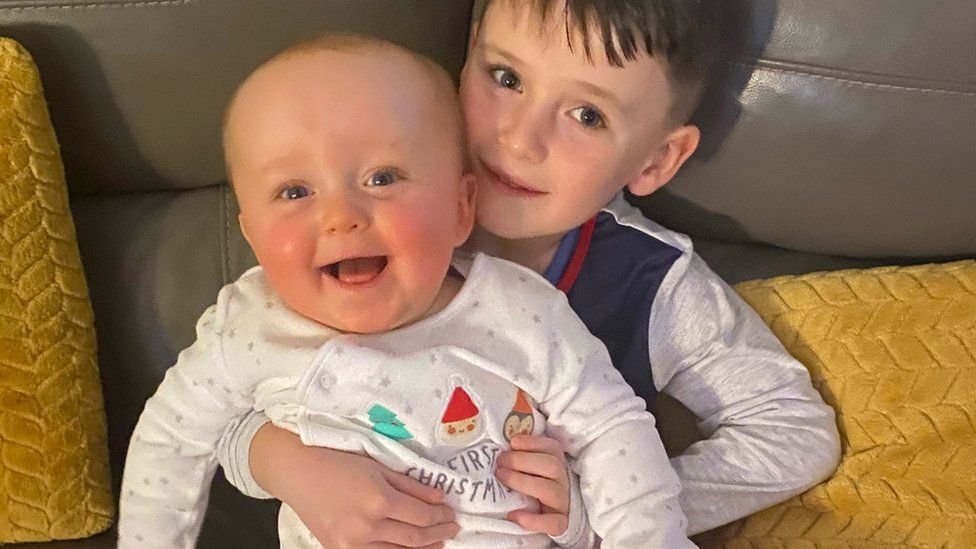
The couple have decided to keep the baby.
"To make that decision while cuddling my seven-month-old baby and looking into his eyes was tough."
Now Beth wants doctors to look into what went wrong but NHS Lothian says it tells everyone who has the procedure about the 1% failure rate.
NHS Lothian's medical director Dr Tracy Gillies said: "We publicly repeat our sincere apology to Ms McDermott and her family for the distress and upset caused."
She added: "Female sterilisation is more than 99% effective however, there's a small risk that a sterilisation operation won't work as blocked tubes can re-join immediately or years later. These risks are discussed with all patients before the procedure is carried out.
"Ms McDermott remains in close contact with our teams and we would urge her to come forward with any further concerns."
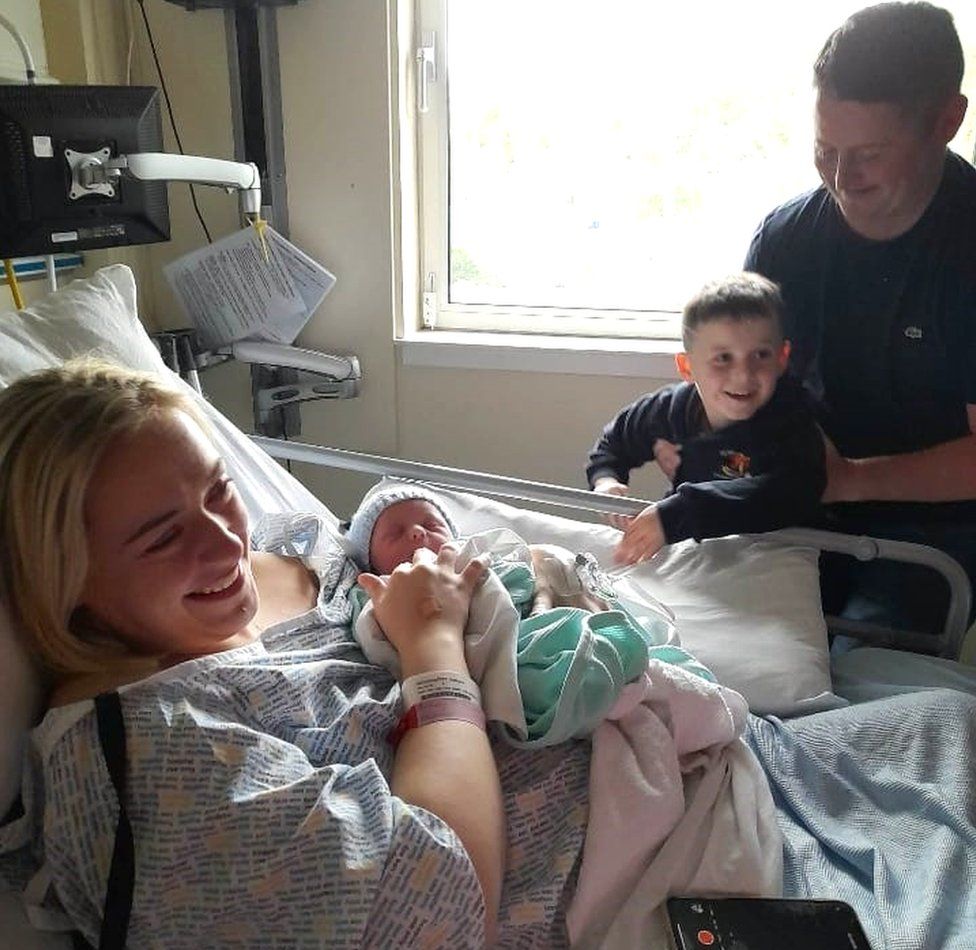
Beth said: "Now that I'm over the shock I am happy but I am also terrified because I know how terrible my last pregnancies were.
"It's a miracle and there is a reason this baby is here and I hope she is a girl although the main thing is our baby is healthy."
Beth has had a written apology from NHS Lothian.
"Although I have had an apology it's not enough. I want answers," she said.
"I want to know if it was a failure because I'm in the 1% or if it was something that was not done properly during the procedure. I would like this investigated and that's what I will be asking the NHS going forward."
From BBC
